Healthy habits are the small, everyday choices and routines that have a significant impact on our overall well-being. These habits encompass various aspects of our lives, from diet and exercise to mental health and self-care. By adopting and nurturing these habits, we can experience a transformation in our health and quality of life.
In this guide, we will explore the importance of healthy habits and provide practical tips for incorporating them into your daily routine.
Table of Contents
Definition of healthy habits
Healthy habits are positive behaviors and practices that individuals incorporate into their daily lives to promote physical, mental, and emotional well-being. These habits encompass a wide range of activities, from maintaining a balanced diet and engaging in regular exercise to managing stress, prioritizing self-care, and fostering positive mental attitudes.
The essence of healthy habits lies in their ability to contribute to a healthier, more fulfilling life, reducing the risk of diseases and enhancing overall quality of life. Healthy habits are rooted in conscious choices and intentional actions that prioritize well-being and long-term health.
Importance of adopting healthy habits for overall well-being
The importance of adopting healthy habits for overall well-being cannot be overstated. Healthy habits are the cornerstone of a fulfilling and long, fulfilling life. Here are some key reasons why embracing healthy habits is crucial for your well-being:
- Improved Physical Health: Healthy habits, such as maintaining a balanced diet and engaging in regular physical activity, promote better physical health. They can help you achieve and maintain a healthy weight, reduce the risk of chronic diseases like diabetes and heart disease, and enhance your energy levels.
- Enhanced Mental Well-being: Healthy habits contribute to better mental health. When you eat nutritious foods, exercise regularly, and manage stress effectively, you’re more likely to experience reduced anxiety and depression. Your overall mood and mental clarity improve as well.
- Reduced Stress Levels: Adopting stress management techniques as a part of your healthy routine can significantly reduce stress levels. This, in turn, leads to better emotional well-being and a more relaxed state of mind.
- Increased Productivity and Focus: Healthy habits can boost your concentration and cognitive functions. When your body and mind are nourished and taken care of, you’re better equipped to handle daily tasks, work efficiently, and stay focused.
- Strengthened Immune System: A balanced diet and regular exercise support a robust immune system. This can help your body fend off infections and illnesses, reducing the frequency and severity of illnesses.
Incorporating healthy habits into your lifestyle is a proactive and empowering choice that can lead to a healthier, happier, and more fulfilling life.
The Benefits of Healthy Habits
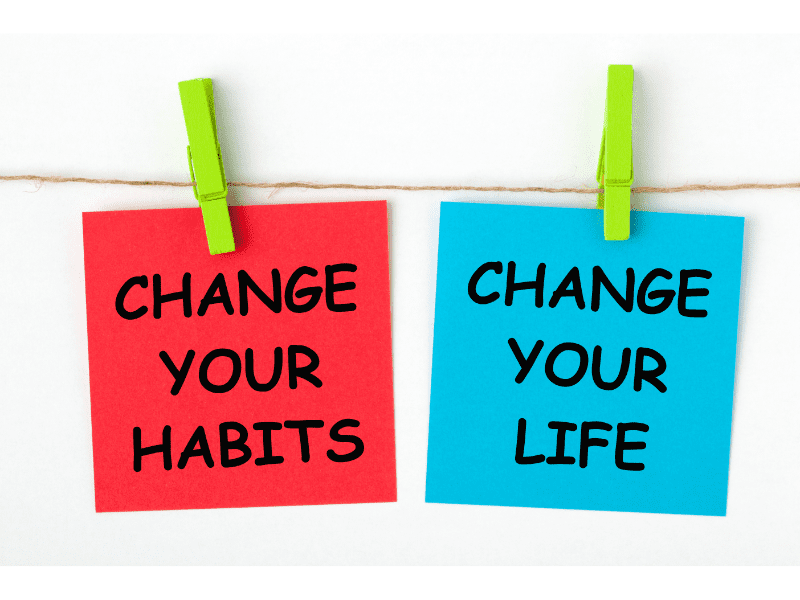
- Improved physical health and energy levels:
Improving physical health and energy levels is a primary benefit of adopting healthy habits. When you make conscious choices to eat nutritious foods and stay physically active, your body responds positively.
A balanced diet provides essential nutrients, helping you maintain a healthy weight, build muscle, and reduce the risk of various health issues. Regular exercise strengthens your cardiovascular system, increases your stamina, and boosts your overall energy levels. Together, these habits create a foundation for vibrant physical health, enabling you to enjoy an active and energetic lifestyle.
- Enhanced mental well-being and reduced stress levels:
Adopting healthy habits isn’t just about physical well-being; it also significantly contributes to enhanced mental well-being and reduced stress levels. Regular exercise, a balanced diet, and proper self-care practices can work wonders for your mental health. Exercise, in particular, releases endorphins, the body’s natural mood lifters, which help reduce stress and anxiety.
Eating nutrient-rich foods and practicing mindfulness contribute to better mental clarity and emotional balance. When you prioritize these habits, you’ll likely experience improved mental well-being and a greater ability to cope with life’s challenges, resulting in reduced stress and a more positive outlook.
- Increased productivity and focus:
Adopting healthy habits doesn’t just have a positive impact on your physical and mental well-being; it can also lead to increased productivity and sharper focus in your daily life. When you nourish your body with a balanced diet and maintain regular exercise, you provide your brain with the essential nutrients and energy it needs to function optimally.
This, in turn, can lead to improved cognitive function, enhanced focus, and the ability to concentrate on tasks for more extended periods. Additionally, stress reduction through healthy habits can prevent mental fatigue and burnout, allowing you to work more efficiently and effectively. So, by prioritizing your health, you’re also giving your productivity and concentration a significant boost.
- Strengthened immune system and disease prevention:
Incorporating healthy habits into your lifestyle has the incredible benefit of strengthening your immune system and reducing the risk of various diseases. When you provide your body with the right nutrients through a balanced diet, your immune system becomes more robust, better equipped to fend off illnesses.
Regular exercise also plays a vital role in enhancing your immune response. By reducing stress and promoting overall well-being, healthy habits help your body maintain a state of readiness to combat infections and diseases effectively. So, not only do these habits make you feel better, but they also act as a shield, protecting you from potential health threats.
Developing a Healthy Routine
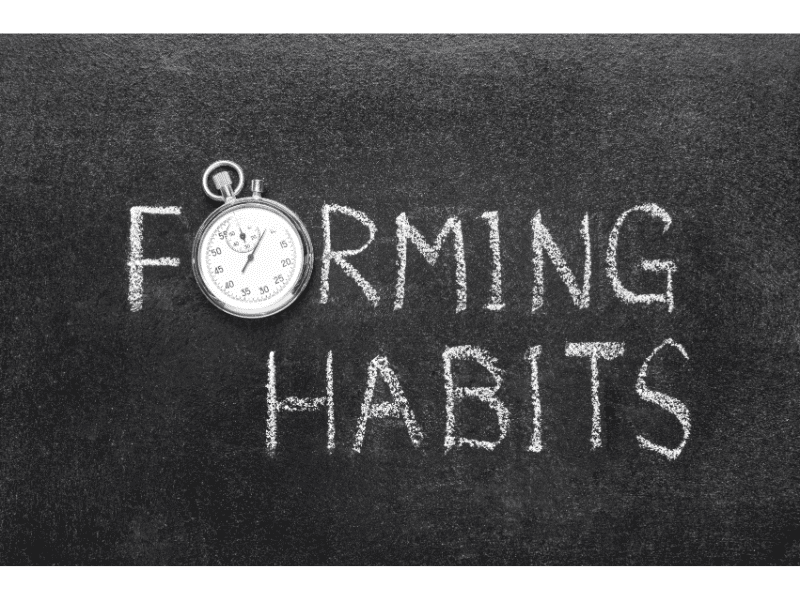
One of the essential steps in adopting healthy habits is setting clear and achievable goals. These goals serve as a roadmap, guiding you on your journey toward a healthier lifestyle. When you establish specific objectives, such as eating more fruits and vegetables, exercising regularly, or reducing stress, it becomes easier to track your progress and stay motivated.
These goals should be realistic and tailored to your unique needs, ensuring they are attainable. Whether you aim to lose a certain amount of weight, run a 5K, or meditate for 10 minutes a day, setting these objectives provides a sense of direction and accomplishment as you work toward a healthier, happier you.
Prioritizing self-care is a crucial aspect of adopting healthy habits. It involves recognizing the importance of taking care of your physical, mental, and emotional well-being. To make self-care a priority, you need to allocate time for it in your daily routine. This means scheduling activities that help you relax, recharge, and unwind.
It could be something as simple as reading a book, taking a bath, or going for a nature walk. By making time for self-care, you acknowledge that your health and well-being deserve attention and care. When you prioritize self-care, you’re better equipped to manage stress, stay motivated, and maintain a positive outlook on life.
Creating a balanced daily schedule is an essential step in adopting healthy habits. A well-structured daily routine helps you efficiently allocate your time and resources to various activities. To create a balanced schedule, start by identifying your priorities and setting clear goals for the day.
Allocate time for work, personal responsibilities, and leisure activities. Ensure you have dedicated slots for meals, exercise, self-care, and relaxation.
A balanced schedule allows you to avoid overcommitting and spreading yourself too thin. It helps you strike a harmonious blend of work and personal life, reducing stress and preventing burnout. Additionally, by following a routine, you can better manage your time, making it easier to incorporate healthy habits seamlessly into your daily life.
By creating a balanced daily schedule, you’re taking a proactive step toward improving your overall well-being, as it helps you maintain consistency in your healthy habits and ensures they become an integral part of your lifestyle.
Incorporating mindfulness and stress management techniques
Incorporating mindfulness and stress management techniques is a key element of adopting healthy habits. Mindfulness involves being fully present in the moment, paying attention to your thoughts and feelings without judgment. This practice can help you manage stress, reduce anxiety, and improve your overall mental well-being.
Here are some ways to incorporate mindfulness and stress management into your daily routine:
- Meditation: Dedicate a few minutes each day to meditation. Sit in a quiet space, focus on your breath, and let go of worries. Meditation can reduce stress and improve mental clarity.
- Deep Breathing: Practice deep breathing exercises to calm your nervous system. Inhale deeply through your nose, hold your breath, and exhale slowly through your mouth.
- Mindful Eating: Pay attention to your meals. Savor the flavors and textures of your food. Eating mindfully can prevent overeating and reduce stress-related eating.
- Daily Walks: Take short breaks during the day to go for a walk. Enjoy the fresh air and the sights and sounds of nature.
- Yoga: Try yoga to improve flexibility and reduce stress. Many yoga poses also incorporate mindfulness and breathing techniques.
- Journaling: Keep a journal to express your thoughts and feelings. Writing can be a therapeutic way to process emotions and reduce stress.
- Progressive Muscle Relaxation: Practice progressive muscle relaxation to release tension from your body. Start at your toes and work your way up to your head, tensing and relaxing each muscle group.
Incorporating mindfulness and stress management techniques can lead to a calmer, more centered you. These practices are essential components of a healthy routine and contribute significantly to your overall well-being.
How can I maintain A Balanced Diet in the long run?

Understanding the importance of a balanced diet is fundamental to adopting healthy habits. A balanced diet provides your body with the essential nutrients it needs to function optimally. It includes a variety of foods from different food groups, such as fruits, vegetables, whole grains, lean proteins, and healthy fats.
This diversity ensures that you get a wide range of vitamins, minerals, and other vital nutrients. A balanced diet not only supports your physical health by maintaining a healthy weight and reducing the risk of chronic diseases but also promotes mental well-being. It’s the foundation for a healthy and energetic life.
Incorporating whole foods, fruits, and vegetables into your diet is a cornerstone of healthy habits. Whole foods are minimally processed and retain their natural nutrients, making them essential for your well-being. Fruits and vegetables, in particular, offer numerous benefits:
- Nutrient Density: Fruits and vegetables are packed with vitamins, minerals, and antioxidants, providing essential nutrients your body needs.
- Fiber: They’re excellent sources of dietary fiber, promoting healthy digestion and aiding in weight management.
- Hydration: Fruits and veggies have high water content, contributing to your daily hydration needs.
- Heart Health: They are associated with a reduced risk of heart disease due to their low saturated fat and cholesterol content.
- Disease Prevention: Regular consumption is linked to a lower risk of chronic diseases like cancer, diabetes, and hypertension.
- Weight Management: These foods are naturally low in calories, making them ideal for those aiming to control their weight.
Including a variety of whole foods, fruits, and vegetables in your daily diet not only supports your physical health but also adds vibrant flavors and colors to your meals. It’s a delicious way to nourish your body and embrace healthy habits.
To maintain healthy habits, it’s crucial to limit processed foods and added sugars in your diet. Processed foods often contain excessive levels of sugar, salt, unhealthy fats, and preservatives, which can have detrimental effects on your health. Similarly, added sugars contribute to weight gain, increase the risk of chronic diseases, and offer little to no nutritional value.
By cutting down on processed foods and being mindful of sugar intake, you can improve your overall health. Opt for whole, unprocessed foods, and when sweetening your meals, consider healthier alternatives like honey or maple syrup. Your body will thank you for making these choices and adopting better, more nutritious habits.
Portion control and mindful eating are two essential components of maintaining a healthy diet and overall well-being. Portion control involves being conscious of the amount of food you consume in one sitting. By eating appropriate portion sizes, you can prevent overeating and manage your weight effectively.
On the other hand, mindful eating is about being fully present and engaged during meals. It means savoring each bite, paying attention to your body’s hunger and fullness cues, and appreciating the flavors and textures of your food. Practicing both portion control and mindful eating can lead to better digestion, weight management, and a healthier relationship with food. These habits empower you to make conscious, nutritious choices that promote your well-being.
What are the benefits of regular exercise?
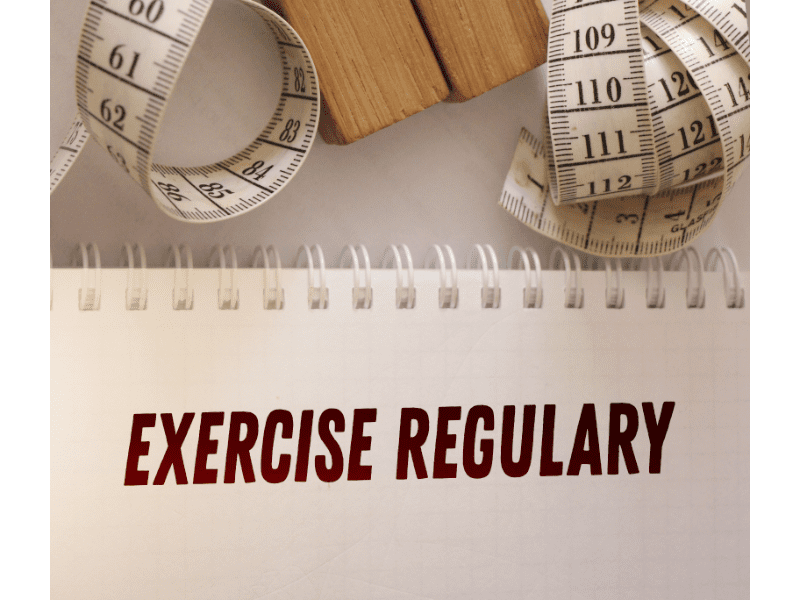
Exercise offers a multitude of benefits for both physical and mental health. Physically, it helps you maintain a healthy weight, strengthens muscles and bones, and enhances cardiovascular health. Regular physical activity reduces the risk of chronic conditions like heart disease, diabetes, and osteoporosis. It also improves flexibility and balance, reducing the likelihood of injuries.
Mentally, exercise is a powerful stress reliever. It stimulates the release of endorphins, which are natural mood lifters, leading to reduced anxiety and depression. Exercise enhances cognitive function and memory, potentially lowering the risk of neurodegenerative diseases.
Furthermore, it provides a sense of accomplishment and boosts self-esteem. Engaging in physical activities like walking, cycling, or dancing is not only fun but also a reliable way to improve both your physical and mental well-being.
When it comes to exercise, finding a routine that aligns with your interests and abilities is crucial for long-term success. Consider activities you genuinely enjoy. Whether it’s dancing, swimming, hiking, or playing a sport, choosing something you like increases the likelihood of sticking with it.
Assess your fitness level and set realistic goals. If you’re a beginner, start with low-impact activities and gradually increase the intensity. For those with more experience, feel free to explore higher-intensity workouts.
The key is to strike a balance between challenge and enjoyment, ensuring your exercise routine is something you eagerly anticipate, not dread. Remember, the best exercise is the one you’ll actually do regularly.
Setting realistic exercise goals is a fundamental part of maintaining a healthy lifestyle. Your goals should be specific, measurable, achievable, relevant, and time-bound (SMART). This framework helps you track your progress and stay motivated.
For example, a SMART goal could be something like “I will walk for 30 minutes five days a week for the next three months.” It’s specific (30 minutes of walking), measurable (five days a week), achievable (you have the time and ability to walk), relevant (it contributes to your overall fitness), and time-bound (over the next three months).
To stay motivated, consider using positive reinforcement. Celebrate your achievements, whether they’re small milestones or significant victories. Rewards can be as simple as treating yourself to a healthy snack, buying new workout gear, or taking a relaxing bath. These rewards serve as a reminder of your accomplishments and help you stay on track.
Incorporating movement throughout the day is a key aspect of a healthy lifestyle. Even if you have a desk job or a sedentary routine, there are many opportunities to add more physical activity to your day. Here are some simple tips for staying active throughout the day:
- Take Short Walks: Stand up and take short walks around your office or home. It’s a great way to break up long periods of sitting.
- Use the Stairs: Instead of the elevator, opt for the stairs. Climbing stairs is an excellent way to get your heart rate up and strengthen your legs.
- Stretch Regularly: Incorporate stretching exercises into your routine. Stretch your arms, legs, and back to relieve tension and improve flexibility.
- Desk Exercises: Do simple exercises at your desk, like seated leg lifts or desk push-ups. These movements can help you stay active during work hours.
- Walk or Bike: If possible, walk or bike to work. It’s an eco-friendly and healthy way to start and end your day.
- Active Commuting: If your workplace is close, consider walking during your lunch break. It’s an excellent way to get some fresh air and light exercise.
- Park Farther Away: When you drive, park your car farther from your destination. This forces you to walk more.
- Take Standing Breaks: Stand up during phone calls or meetings instead of sitting. This can help improve your posture and circulation.
- Gardening or Housework: Gardening and housework can be physically demanding and count as exercise. Use these activities to keep moving.
- Use a Pedometer: Consider using a pedometer or a fitness tracker to count your daily steps. Aim for a certain number of steps as a daily goal.
Remember, every bit of movement counts. Even short bursts of activity can add up to significant health benefits over time.
Maintaining Mental Well-being

Recognizing the importance of mental health is a crucial aspect of maintaining overall well-being. Mental health influences every facet of our lives, from our emotions and relationships to our work and physical health. It’s the foundation of resilience and coping with life’s challenges.
Understanding the significance of mental health empowers individuals to prioritize self-care, seek support when needed, and implement strategies to manage stress and promote a positive mindset. The mental health is prioritized, it enhances the quality of life and contributes to a healthier and more balanced existence.
Incorporating stress management techniques such as meditation and deep breathing into your daily routine can significantly enhance your mental well-being. Here’s why these practices are crucial:
- Relaxation: Both meditation and deep breathing are proven methods for inducing relaxation. They help calm the mind, reduce tension in the body, and promote a sense of tranquility.
- Stress Reduction: These techniques are highly effective for reducing stress. Regular practice can lower cortisol levels (the stress hormone) and alleviate the physical and emotional symptoms of stress.
- Improved Focus: Meditation, in particular, can enhance your ability to concentrate and stay present. This increased focus can help you manage stressors more effectively.
- Emotional Regulation: Deep breathing and meditation can assist in emotional regulation. They provide a healthy outlet for processing and managing emotions, reducing the likelihood of being overwhelmed by them.
- Enhanced Self-Awareness: Meditation encourages self-reflection and self-awareness. This heightened understanding of your thoughts and feelings can aid in recognizing and managing stress triggers.
- Better Sleep: Both practices can improve sleep quality. By calming the mind and reducing anxiety, they help you get more restful and restorative sleep.
To incorporate these techniques into your daily life, set aside dedicated time for meditation and deep breathing exercises. Start with short sessions and gradually increase the duration as you become more comfortable. You can find guided meditations and deep breathing exercises online or through mobile apps to help you get started. Making these practices a regular part of your routine can significantly contribute to your overall mental well-being.
Seeking support from loved ones or professional help when needed is a vital aspect of maintaining your mental well-being. Here’s why it’s important:
- Emotional Outlet: Sometimes, you may need someone to talk to about your feelings, anxieties, or stressors. Loved ones can provide a listening ear and emotional support. Sharing your concerns can be a cathartic experience and help relieve emotional burdens.
- Different Perspectives: Friends and family can offer fresh perspectives on your situation. They might provide insights, advice, or solutions that you haven’t considered. This can be especially valuable when dealing with challenging issues.
- Social Connection: Connecting with loved ones is crucial for maintaining a sense of belonging and reducing feelings of isolation. Social support can act as a protective factor against mental health issues.
- Professional Guidance: In some cases, seeking help from a mental health professional, such as a therapist, counselor, or psychiatrist, is essential. These experts can offer specialized strategies and interventions to address specific mental health challenges. They provide a safe and confidential space for you to discuss your concerns.
- Skill Development: Professionals can teach you valuable coping skills and techniques to manage stress, anxiety, or other mental health issues effectively. These skills are tools you can use throughout your life.
- Early Intervention: Recognizing when to seek professional help is crucial in preventing issues from escalating. Early intervention can make a significant difference in managing and recovering from mental health challenges.
Whether you turn to friends and family or seek professional help, remember that reaching out is a sign of strength, not weakness. It’s a proactive step toward taking care of your mental well-being, and there’s no shame in asking for support when you need it.
Practicing self-compassion and positive self-talk is a powerful way to nurture your mental well-being. It involves treating yourself with kindness, understanding, and empathy, much like you would treat a friend. By cultivating self-compassion, you can counter self-criticism and develop a healthier self-image.
Positive self-talk involves replacing negative, self-deprecating thoughts with supportive and uplifting ones. This internal dialogue can boost your self-esteem and help you manage stress and challenges more effectively.
Together, self-compassion and positive self-talk create a nurturing and encouraging environment for your mental health.
Self-Care Practices
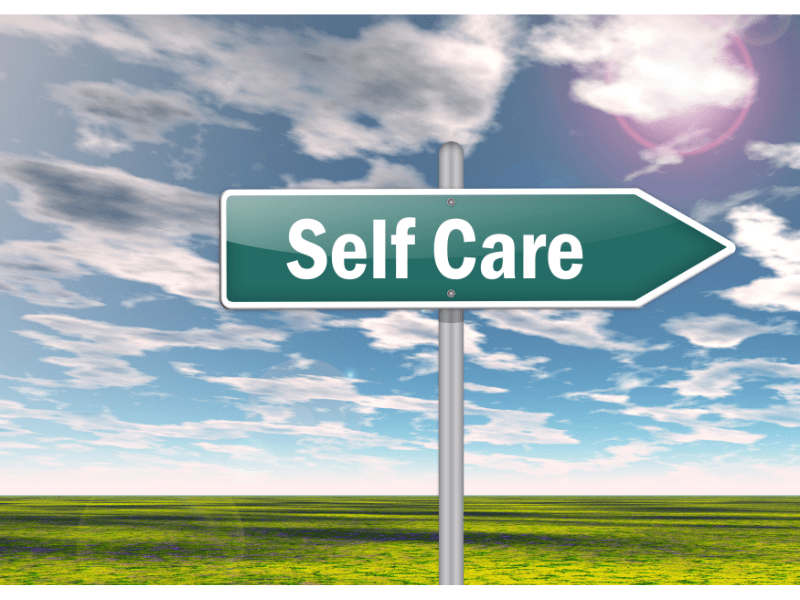
Importance of self-care for overall well-being
Self-care is of paramount importance for overall well-being. By prioritizing self-care, you can nurture your physical, emotional, and mental health, leading to a happier and more balanced life. Here’s why self-care is essential:
- Stress Reduction: Engaging in self-care activities helps to alleviate stress and anxiety. It provides moments of relaxation and rejuvenation, enabling you to cope better with life’s challenges.
- Improved Mental Health: Self-care contributes to better mental health by reducing burnout, preventing emotional exhaustion, and promoting a positive mindset. Taking time for yourself can lead to greater emotional resilience and well-being.
- Physical Health: Self-care practices like regular exercise, a balanced diet, and sufficient rest support your physical health. They help maintain your energy levels, strengthen your immune system, and reduce the risk of chronic diseases.
- Increased Productivity: When you invest in self-care, you’re more likely to experience increased productivity. Taking breaks and caring for your well-being can enhance your focus, creativity, and work efficiency.
- Healthy Relationships: Self-care ensures you have the emotional resources to maintain healthy relationships. When you care for yourself, you’re better equipped to care for others, fostering stronger connections with loved ones.
- Self-Compassion: Prioritizing self-care encourages self-compassion, where you treat yourself with kindness, understanding, and love. This, in turn, boosts your self-esteem and self-worth.
In summary, self-care is not a selfish act but a necessary one. It’s the foundation for a balanced, fulfilling, and healthy life. By nurturing your well-being through self-care, you’re better equipped to tackle life’s challenges and savor its joys.
Self-care isn’t just about checking off a to-do list of wellness activities; it’s about finding the ones that truly bring you joy and relaxation. It’s a personal journey of self-discovery.
What brings relaxation and joy can vary widely from person to person. It might be a leisurely nature walk, an evening spent painting, a peaceful meditation session, or simply enjoying a cup of tea while reading a book, Music, Mindfulness Meditation, Yoga, Cooking or Baking, or Gardening.
The key is to explore different activities and observe how each one makes you feel. When an activity brings genuine happiness and relaxation, you’ve found a self-care practice that suits you perfectly.
Making self-care a priority and incorporating it into your daily routine is essential for maintaining overall well-being. It involves recognizing that taking care of yourself is not a luxury but a necessity.
To do this, set aside dedicated time for self-care in your schedule, whether it’s a few minutes each day or a more extended period each week.
By making self-care a habit, you ensure that it becomes an integral part of your life, helping you manage stress, enhance your mental and emotional health, and ultimately lead a happier and healthier life.
Setting boundaries and knowing when to say no are crucial aspects of self-care. It involves recognizing your limits and valuing your time and energy. By setting clear boundaries, you protect yourself from overcommitting or engaging in activities that may drain you. Remember, saying no isn’t a sign of selfishness; it’s a sign of self-respect.
Prioritizing your well-being allows you to maintain a healthy balance in your life and have the energy and time for the things that truly matter to you.
Managing Stress
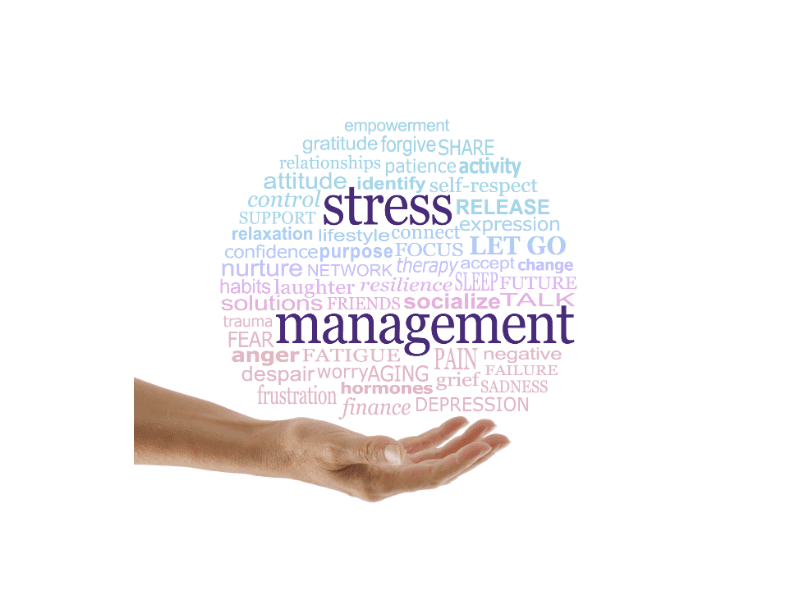
Stress can have a significant impact on overall health. When the body experiences stress, it triggers a series of physiological responses, including the release of stress hormones like cortisol and adrenaline. While these responses are designed to help in times of acute danger, chronic stress can lead to various health issues.
These may include high blood pressure, a weakened immune system, anxiety, depression, and even an increased risk of chronic diseases. Recognizing the impact of stress is the first step in managing it and maintaining a healthy lifestyle.
Identifying personal stressors is essential for effective stress management. These stressors can be different for each individual, such as work-related pressures, financial concerns, or personal relationships. Once you pinpoint the specific stressors in your life, you can develop coping mechanisms tailored to your needs.
These may include practicing relaxation techniques, setting boundaries, time management, or seeking support from loved ones or professionals. By addressing your unique stressors and implementing coping strategies, you can better manage stress and maintain a healthy lifestyle.
Achieving a healthy work-life balance is crucial for overall well-being. It involves managing your professional commitments and personal life in a way that ensures neither one overshadows the other. This balance allows you to excel in your career while also having time for relaxation, family, and personal activities.
It might involve setting boundaries at work, scheduling downtime, and prioritizing self-care. A balanced work-life equilibrium contributes to reduced stress and improved mental and physical health, ultimately supporting a healthier lifestyle.
Incorporating relaxation and stress-reducing activities into daily routines is essential for maintaining mental and physical well-being. Simple practices like meditation, deep breathing exercises, or taking short breaks to clear your mind can make a significant difference.
These activities can help reduce stress levels, improve focus, and enhance your overall mood. Integrating them into your daily routine ensures that you have built-in moments of relaxation, making it easier to manage stress and maintain a healthier lifestyle.
Final thoughts on the importance of healthy habits for overall well-being
In conclusion, healthy habits are the cornerstone of a fulfilling and Wellness-rounded life. They provide a roadmap to physical vitality, mental peace, and emotional well-being. Adopting and maintaining these habits, from a balanced diet and regular exercise to stress management and self-care is an investment in yourself.
By prioritizing these practices, you pave the way for a life filled with energy, productivity, and happiness. Remember that the journey to a healthier you is a marathon, not a sprint. Small steps and consistent efforts will lead to profound changes. So, embrace these healthy habits, and watch as they transform your overall well-being, ensuring that you live your best life.
Now, as we wrap up this exploration of healthy habits, I want to leave you with one key message: your well-being is worth the effort. Don’t underestimate the transformative power of adopting healthier habits. The small changes you make today can lead to profound improvements in your overall quality of life.
So, start where you are, and take that first step towards a healthier, happier you. Whether it’s committing to a balanced diet, embracing regular exercise, prioritizing self-care, or managing stress, remember that every positive choice you make is a step towards a better, brighter future.
As you embark on this journey, be patient with yourself. Progress may be gradual, but the results are long-lasting. Stay motivated, stay consistent, and believe in your ability to change for the better. You have the strength and resilience to create a life filled with vitality and well-being.
The path to healthier habits is not without its challenges, but the rewards are well worth it. So, take the first step, and watch as each day brings you closer to the healthier, happier life you deserve. Your well-being is in your hands, and your journey starts now.
Reiteration of the benefits and potential positive outcomes of living a healthy lifestyle

In the journey to embrace healthy habits, it’s crucial to reiterate the benefits and the positive outcomes that await you. By making a conscious choice to prioritize your well-being, you are opening the door to a world of positive changes.
A healthier lifestyle isn’t just about looking better; it’s about feeling better in every aspect of your life. You’ll find that your physical health improves, granting you more energy and vitality to enjoy your favorite activities. Your mental well-being will flourish, helping you cope better with stress and navigate the challenges of life. This mental clarity and emotional resilience will enhance your overall productivity, making you more effective in your personal and professional pursuits.
Perhaps most importantly, a healthy lifestyle acts as a shield, bolstering your immune system and reducing the risk of chronic diseases. By embracing a balanced diet, regular exercise, and mental well-being practices, you’re investing in a future of better health, fewer sick days, and greater longevity.
So, don’t forget the numerous benefits and potential positive outcomes of living a healthy lifestyle. It’s not just about looking good; it’s about feeling your best, every single day. Each choice you make to prioritize your well-being is a step closer to the life you’ve always wanted.
Keep that vision in your mind as you embark on your journey to a healthier, happier you!!. Your future is bright, and it begins with a commitment to healthy habits.
Also Read: UNLEASH YOUR POTENTIAL: THE BEGINNER’S GUIDE TO AN ACTIVE AND FIT LIFESTYLE

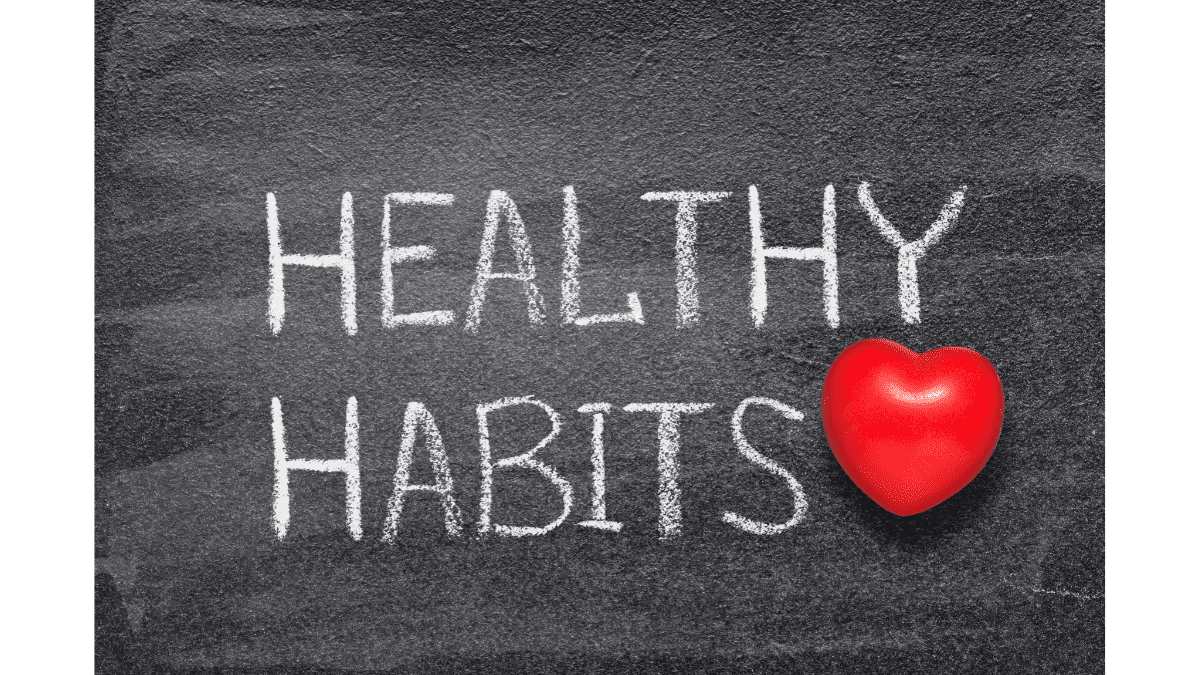
1 thought on “How to Kickstart Your Healthy Habits with Fitness Journey”